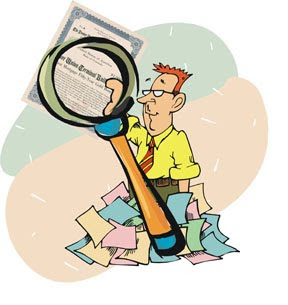Imported from: Google Blogger site
Original publish date: September 2, 2010
Where do new VARIETIES come from? (part 2)

On August 26, 2010, I wrote about where I acquire new information about railroad certificates. "New information" includes everything: new sales prices, new serial numbers, new varieties, new issuance conditions, new printers, etc. Out of all this new information, I imagine collectors consider the discovery of new varieties of certificates to be the most important.
It is probably not surprising that, over the last five years, major auction houses combined to contribute the most new varieties (34.6%). Until early 2008, the late R.M. Smythe company contributed the bulk of new varieties. Since that time, the majority of new varieties came from sales compiled and cataloged by Dr. Robert Schwartz (initially for H.R. Harmer and more recently for his own Archives International Auctions.)
Curiously, less than half of all new "auction house" varieties sold the first time they were offered. I suspect part of the reason can be traced to over-enthusiastic valuations by the houses. On the other hand, collectors tell me they are always a little jumpy when new certificates first appear. They don't know whether the certificates being offered are unique or merely the first appearances of thousands more to come.
Over the same time period, the collectors who correspond with me reported a nearly equal percentage of new varieties (32%). While they rarely tell me their sources, I suspect the majority of their certificates came from U.S. dealers. If true, collectors who didn't get in on all those new varieties really need to form closer relationships with dealers.
Granted, dealers don't always know when they have new varieties. Nonetheless, they always know when they encounter certificates they've never seen before. Dealers tend to sell new-found certificates very quickly to their best customers. Rarely do they ever need to offer such certificates in lists, catalogs and web sites. Collectors please take notice: worldwide, only four dealers routinely report their new discoveries to me. Consequently, dealers are greatly under-represented in my records as good sources of new varieties.
In case you're wondering, no, there is no double counting. I always attribute new discoveries to earliest appearances. If collectors get certificates from auctions, auction appearances prevail.
Now for the surprise — and I hope this wakes up advanced collectors!! The third largest source for new varieties was eBay. That oft-demeaned source contributed 22.1% of all new varieties over the last five years.
Yes, I've heard collectors argue for years that they're tired of eBay "junk." They complain that they see the same old certificates day-in, day-out.
That is true. But the opposite is equally true! My census clearly shows that eBay sellers sold an average of 4.3 "new" certificates per week. I stress that I do NOT count eBay items that don't sell, nor do I count items that sell for less than $25.
Please be aware that astute dealers frequently recycle "new" items they find on eBay. Many of those items ultimately end up in dealer inventories and auction house catalogs. I do not know the exact routes those certificates take, but when " tired old eBay junk" is ultimately re-packaged, you must assume that prices will be multiplied several times.
Now for the bad news.
The discovery rate for new varieties has definitely dropped over the last couple years, certainly made worse by the global economy. I expect the rate of discoveries of new varieties will continue to drop.
But let's be clear. In this week alone, I have already recorded five new varieties plus two certificates that have only appeared once in twenty years.
Please note that I only counted first appearances of new certificate varieties for this little exercise. I did not count minor new variations of issued, unissued, cancelled, uncancelled, specimens and proofs as new varieties.